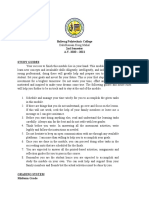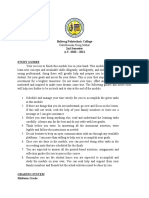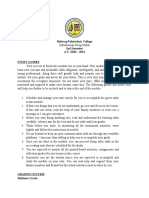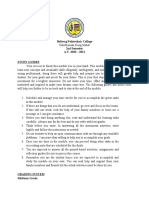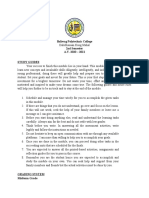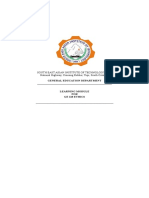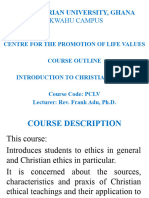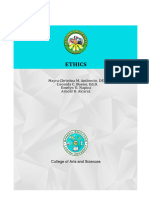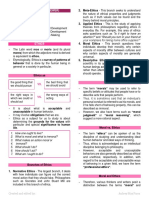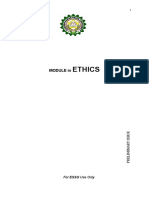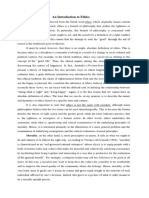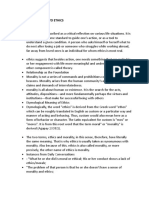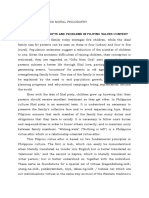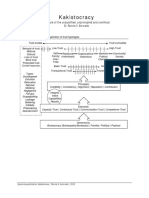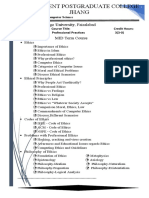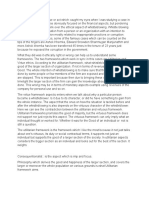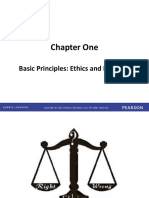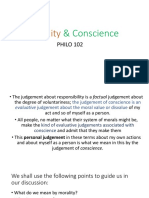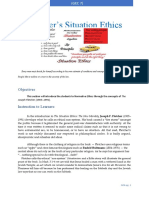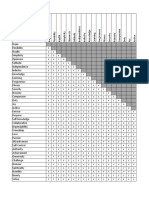0% found this document useful (0 votes)
74 views6 pagesBaliwag Polytechnic College 2nd Semester A.Y. 2020 - 2021
This document provides a study guide and schedule for an ethics course at Baliwag Polytechnic College for the second semester of the 2020-2021 academic year. It includes:
1. Advice for students on managing their time, seeking help if needed, carefully reading tasks, and maintaining open communication with the instructor.
2. Information on grading, with midterm and final grades based 60% on self-paced activities and quizzes and 40% on examinations.
3. A schedule detailing the 15 modules to be covered from January to May, along with topics and lessons for each week.
Uploaded by
Carlo CalmaCopyright
© © All Rights Reserved
We take content rights seriously. If you suspect this is your content, claim it here.
Available Formats
Download as DOCX, PDF, TXT or read online on Scribd
0% found this document useful (0 votes)
74 views6 pagesBaliwag Polytechnic College 2nd Semester A.Y. 2020 - 2021
This document provides a study guide and schedule for an ethics course at Baliwag Polytechnic College for the second semester of the 2020-2021 academic year. It includes:
1. Advice for students on managing their time, seeking help if needed, carefully reading tasks, and maintaining open communication with the instructor.
2. Information on grading, with midterm and final grades based 60% on self-paced activities and quizzes and 40% on examinations.
3. A schedule detailing the 15 modules to be covered from January to May, along with topics and lessons for each week.
Uploaded by
Carlo CalmaCopyright
© © All Rights Reserved
We take content rights seriously. If you suspect this is your content, claim it here.
Available Formats
Download as DOCX, PDF, TXT or read online on Scribd
/ 6

